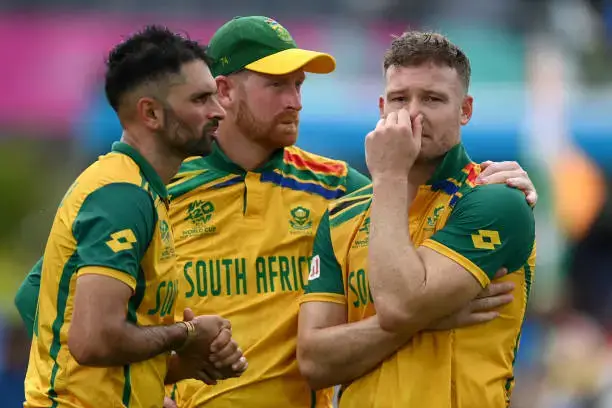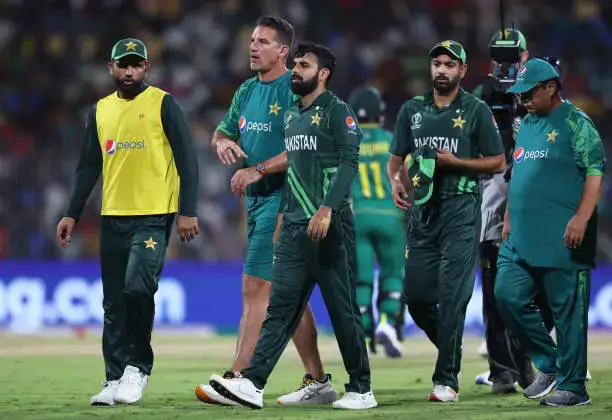A Waiting Game: South Africa vs Pakistan T20I Series Amid Bigger Priorities
There’s little as universally experienced as waiting through an unremarkable preamble before reaching the meat of an affair. Be it sitting through a generic opening ceremony at a T20I league or listening to a story you didn’t ask for, only at some tedious length, it’s weirdly familiar. The three-match T20I series against South Africa and Pakistan has that same flavor of a necessary preamble to far greater pursuits ahead for both sides.
A Distracted South Africa
For South Africa, the T20I series plays second fiddle to their newfound triumph in red-ball cricket. Their dramatic Test win over Sri Lanka in Gqeberha has kept their hopes alive for a spot in the final of the ICC World Test Championship. This victory with the cacophony surrounding their Test team has doggedly tied their focus—and that of their fans—to the longer format. As the Patriots prepare for the first T20I in Durban on Tuesday, the absence of key Test players underscores their priorities.
The T20I squad, captained by Heinrich Klaasen, lacks the full strength of a typical South African lineup. With players like Reeza Hendricks, David Miller, Anrich Nortje, and Tabraiz Shamsi among the few experienced names, many of the others would struggle to make the XI in an all-hands-on-deck scenario. Despite the training camp in Pretoria ahead of Durban, one feels these games will serve more as fulfilling an obligation than a proper fitness test.

South Africa’s recent record in T20Is reads like a horror story. They haven’t won a single bilateral series this year, getting whitewashed by the West Indies and losing to an Indian A side. Their one positive, a 1-1 draw against Ireland, does not offer much hope. But somehow these performances feel oddly inconsequential. This is for the simple reason that this is the same side that came perilously close to winning the T20 World Cup earlier this year. Their near-miss on cricket’s biggest T20 stage is a strong reminder of how little bilateral series contribute toward shaping stories around teams.
Pakistan’s Experimental Approach
Pakistan, too, enters this series with other priorities in their mind. Amid their busiest Test season this century and as hosts of the Champions Trophy in just over two months, T20Is have taken a backseat. Head coach Aqib Javed has openly acknowledged the experimental nature of Pakistan’s approach to the format. With a rotating cast of players, Pakistan has been treating T20I matches as a testing ground rather than an arena for definitive results.
Their last few outings offer little clarity. Wins in the ODI and T20I series against Zimbabwe were soured by dropped games each. Even their 2-1 ODI series win in Australia is looked at with more glee than the T20I losses that followed it. And while captain Mohammad Rizwan, Babar Azam, and Shaheen Shah Afridi return to the fold for this series, it’s apparent Pakistan’s emotional and strategic interest lies elsewhere.
Still, there are reasons to watch. Young talents like Saim Ayub, an opening batter, and Sufiyan Muqeem, a promising left-arm wrist spinner, offer a glance at Pakistan’s future. Both shone during the Zimbabwe tour and will face tougher opposition in South Africa. However, even with these individual narratives, the overall storyline remains squarely in the shadow of the Test series and ODI commitments upcoming.
Nostalgia and Context
Lack of context is perhaps the biggest problem for the bilateral T20I series. Although the results give an immediate high, the broader meaning remains hollow most of the time. However, this series hints at nostalgia. Between 2016 and 2018, Pakistan won 11 successive bilateral T20 series—their record is still unbroken. That run of success came to an end in January 2019, at least against one rival, when South Africa beat Pakistan 2-1 in an intense series. To Pakistan, that series marked the beginning of the slow slide into oblivion for their T20 supremacy, while for South Africa, it stood out like a beacon on a rather dark season for the Proteas.
An encore of this rivalry might recall memories from that period and give a semblance of meaning to an otherwise low-stakes series. Neither side is near its peak form in this format, but going into a real challenge with this series under their belts is irrefutable.
Broader Implications
Beyond the nostalgia, both teams are in the transition phase. South Africa sees T20Is as a bridge to finding players to add depth to an already confident red-ball squad. For Pakistan, the series is a chance to come out of the disappointment of a challenging year in T20 cricket. Their shock exit from the T20 World Cup, failing to an India and, more shockingly, the USA side, showed gaping holes that must be plugged.
At its heart, this series feels like a sideshow. Southisrica are concerned with their red-ball resurgence, and Pakistan’s attention is divided between upcoming Tests and the Champions Trophy. Yet, cricket often surprises. Moments of brilliance—be it a standout performance from a young player or a gripping contest between bat and ball—can transform the mundane into the memorable.
Conclusion
The South Africa vs. Pakistan T20I series, no matter how mundane the series might be without that World Cup fervor or that gravitas of a Test decider, serves a purpose for itself—it is a testing ground, an opportunity to experiment, and therefore, a chance to build for the future. It’s going to be a waiting game for fans and players alike, as this moment, in hindsight, may well prove to be more significant than it first appears. If either team can use this series as a springboard for greater achievements, then perhaps this preamble will have been worth sitting through after all.



